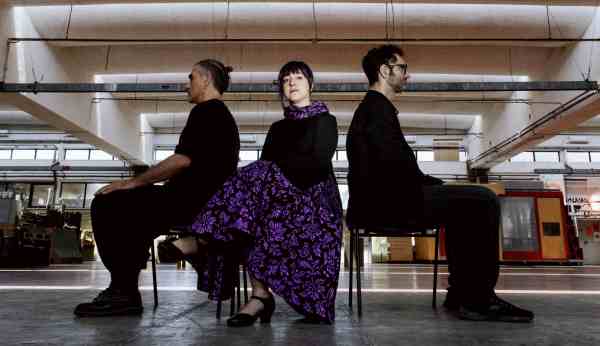

Maria Mazzotta
Whether delving into the past for material or writing her own, Mazzotta keeps the long shadow of the tradition close by. But she also looks out from Italy, searching for what different musical styles have in common. “Sula Nu Peui Stare” is the best example, exploring the innate connections of Italy to Andalusia, and the flamenco buleria style, and from there it feels like a short, natural hop down to Africa, finding similarities in both style with the triplet-led desert blues, with Niger fretboard star Bombino adding his fiery guitar work to emphasize how everything weaves together. He's not the only guest (Volker Goetze plays trumpet on “Canto E Sogno”) but essentially this is an album for a trio of Mazzotta, Ernesto Nobili on guitars and Cristiano Della Monica on drums, percussion, and electronics. Between them they produce layers of sound that frame her stunning voice.
That voice is very rightly the star of the show. Capable of great power, Mazzotta also has wonderful restraint in her technique with a solid understanding of dynamics. The song is always the important thing, not her personality. The album title translates as waves, and that constant movement is there in the music and the voice. It’s the underpinning of “Terra Can Nun Senti,” a song made famous by Sicily’s Rosa Balistreri, performed with passion and rawness, dedicated to those who have been displaced by war and strife. It’s a tour de force.
Yet the centrepiece of Onde might well be “Nanna Core/Pizzica De Core,” opening with its lulling wash of over lapping voices before erupting into a head-banging, distorted guitar taranta dance that could come from nowhere else but the heel of Italy.
Then, aptly for an album that surrounded by the sea, it all ends with the fisherman’s prayer. “Matonna Te Lu Mara,” something akin to Italian gospel music that lets Mazzotta’s voice soar. Maria Mazzotta and her band break new ground here, and they do it with incredible assurance and majesty. Onde is a triumph.
Further reading:
Search RootsWorld
|